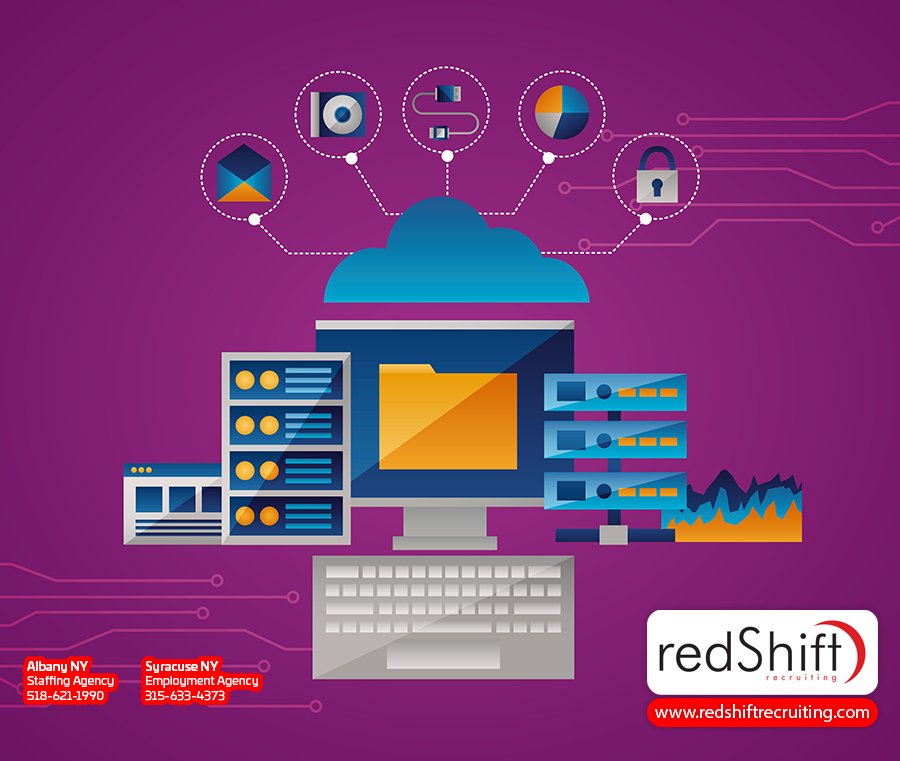
VMware Certifications
VMware certifications are professional credentials provided by VMware, a global leader in cloud infrastructure and digital workspace technology. These certifications validate an individual’s expertise in VMware’s various virtualization and cloud-based solutions as well as being a useful desktop management solutions. Here's a detailed overview:
What VMware Certifications Do?
Validate Skills and Knowledge: VMware certifications confirm an individual's skills in installation, configuration, management, and optimization of VMware solutions.
Career Development: Obtaining a VMware certification can significantly enhance an IT professional's career prospects, demonstrating expertise in virtualization, which is a critical area in IT infrastructure management.
Credibility and Recognition: These certifications are widely recognized in the IT industry and add credibility to an IT professional’s profile.
Stay Current with Technology: Pursuing VMware certifications helps professionals stay up-to-date with the latest technologies and trends in virtualization and cloud computing.
Why They Are Important:
Industry Demand: As virtualization remains a crucial component of IT infrastructure, expertise in VMware solutions is highly sought after in the industry.
Enhancing IT Infrastructure: Professionals skilled in VMware technologies are crucial for businesses looking to improve efficiency, scalability, and cost-effectiveness in their IT operations.
Enabling Cloud Solutions: With the increasing adoption of cloud technologies, knowledge of VMware's cloud and virtualization solutions is vital for IT professionals working in cloud computing environments.
Professional Growth: VMware certifications can open doors to advanced career opportunities in areas like systems administration, IT infrastructure management, and cloud computing.
Popular VMware Certifications:
VMware Certified Professional (VCP): This is a mid-level certification focusing on vSphere, VMware’s virtualization platform. It is designed for IT professionals who install, configure, manage, and optimize VMware solutions.
VMware Certified Advanced Professional (VCAP): Aimed at professionals who design and build VMware Solutions (VCAP Design) and manage and optimize VMware solutions (VCAP Deployment).
VMware Certified Design Expert (VCDX): The highest level of VMware certification, requiring a substantial time commitment and a deep understanding of VMware technology, especially for those who design and build VMware solutions in complex environments.
VMware Certified Technical Associate (VCTA): An entry-level certification focused on operator-level skills for VMware environments, suitable for those new to the industry.
In summary, VMware certifications are important for IT professionals involved in managing virtualization environments and cloud computing. They are a testament to one's skills and expertise in VMware technologies, making them a valuable asset for career advancement in the IT field.
What Certifications Does VMware Offer?
VMware offers a wide range of certifications that demonstrate knowledge of vSphere infrastructure, VMware NSX, Security Solutions, Network Virtualization, and more. These certifications cover a variety of topics, including routing and switching, security, wireless, and collaboration. The certifications VMware offers include:
VMware Certified Technical Associate - Data Center Virtualization 2023
VMware Certified Professional - Data Center Virtualization 2023
VMware Certified Advanced Professional - Data Center Virtualization Design 2023
VMware Certified Advanced Professional - Data Center Virtualization Deploy 2023
VMware Certified Implementation Expert - Data Center Virtualization 2023
VMware Certified Design Expert - Data Center Virtualization 2023
VMware Certified Specialist - VMware Cloud Foundation Deployment 2024
VMware Certified Specialist - vSAN 2023
VMware Certified Specialist - vRealize Operations 2023
VMware Certified Master Specialist - HCI 2023
VMware Certified Specialist - Cloud Provider 2023
VMware Certified Specialist - Cloud Foundation 2023
VMware Certified Specialist - vSphere with Tanzu 2023
VMware vRealize Operations - Cloud Management Automation 2023
VMware Certified Technical Associate - Network Virtualization 2023
VMware Certified Professional - Network Virtualization 2023
VMware Certified Advanced Professional - Network Virtualization Design 2023
VMware Certified Advanced Professional - Network Virtualization Deploy 2023
VMware Certified Implementation Expert - Network Virtualization 2023
VMware Certified Design Expert - Network Virtualization 2023
VMware SD-WAN Foundations Skills 2023
VMware SD-WAN Troubleshoot Skills 2023
VMware SD-WAN Design and Deploy Skills 2023
VMware NSX Advanced Load Balancer (Avi) for Operators Skills 2023
VMware Certified Master Specialist - SD-WAN 2023
VMware Certified Technical Associate - Cloud Management and Automation 2023
VMware Certified Professional - Cloud Management and Automation 2023
VMware Certified Advanced Professional - Cloud Management and Automation Deploy 2023
VMware Certified Advanced Professional - Cloud Management and Automation Design 2023
VMware Certified Implementation Expert - Cloud Management & Automation 2023
VMware Certified Design Expert - Cloud Management and Automation 2023
VMware Certified Professional - Cloud Operations 2023
VMware Certified Professional - VMware Cloud 2023
VMware Certified Master Specialist - Cloud Native 2023
VMware Certified Specialist - Tanzu Mission Control 2023
VMware Telco Cloud NFV Skills 2023
VMware Telco Cloud Automation Skills 2023
VMware Telco Cloud Platform Specialist Skills 2023
VMware Telco Cloud Practitioner Milestone 2023
VMware Certified Technical Associate - End-User Computing 2023
VMware Certified Professional - Digital Workspace 2023
VMware Certified Advanced Professional - Desktop Management Deploy 2023
VMware Certified Professional - Desktop Management 2023
VMware Certified Advanced Professional - Desktop Management Design 2023
VMware Certified Implementation Expert - Desktop Management 2023
VMware Certified Design Expert - End-User Computing 2023
VMware Certified Master Specialist - Digital Workspace 2023
VMware Certified Specialist - Workspace ONE 21.X Advanced Integration 2023
VMware Certified Specialist - Workspace ONE 21X UEM Troubleshooting 2023
VMware Workspace ONE for macOS Skills 2023
VMware Certified Technical Associate - Security 2023
VMware Certified Professional - Endpoint and Workload Security 2023
VMware Carbon Black Cloud Audit and Remediation Skills 2023
VMware Carbon Black Cloud Enterprise EDR Skills 2023
VMware NSX-T Data Center Security Skills 2023
VMware Carbon Black Cloud Endpoint Standard Skills 2023
VMware Certified Technical Associate - Application Modernization 2023
Spring Certified Professional 2023
VMware Certified Professional - Tanzu for Kubernetes Operations 2023
VMware FAQs
What is VMware used for?
VMware is used for virtualization, which involves creating virtual versions of physical components like servers, storage devices, networks, and even entire operating systems. It allows multiple virtual machines (VMs) to run on a single physical machine, with each VM isolated and operating independently. This setup is widely used in IT environments for efficient resource utilization, simplified IT management, testing, and development, as well as for enhancing system security and disaster recovery processes.
Is VMware owned by Microsoft?
No, VMware is not owned by Microsoft. VMware Inc. is a separate entity, originally founded in 1998 and known as a leader in virtualization and cloud infrastructure solutions. As of my last update, it was a publicly-traded company. Microsoft has its own virtualization product called Hyper-V, which is a competitor to VMware's offerings.
Can I use VMware for free?
VMware offers a free product called VMware Workstation Player for non-commercial, personal, and home use. This version is suitable for users who need to run a single virtual machine on a personal computer. However, for commercial use or to access more advanced features, a paid version like VMware Workstation Pro or other VMware enterprise solutions would be required.
Is VMware an operating system?
VMware is not an operating system. It’s a virtualization software that allows users to run multiple instances of different operating systems on a single physical server or computer. These instances are known as virtual machines, each of which runs its own operating system independently.
What is VMware in simple terms?
VMware is a technology company that provides virtualization and cloud computing software. Its software allows creating virtual versions of computers and operating systems, which run simultaneously and independently on a single physical machine. This setup helps in better utilization of hardware resources, simplifies IT management, and enhances security and scalability in computing environments.
Is VMware a server or software?
VMware is primarily known for its software products related to virtualization. It provides solutions like VMware Workstation and VMware ESXi, which are used to create and manage virtual machines. VMware ESXi is installed directly on server hardware to create a hypervisor, which allows for running multiple virtual servers on a single physical server.
How much does VMware cost?
The cost of VMware products varies depending on the specific solution and licensing model. Basic products like VMware Workstation Player are available for free for personal use, while more advanced solutions like VMware, vSphere, vmware certification exams or VMware Workstation Pro come with a cost, typically charged per CPU or per socket for enterprise solutions. Pricing can range from a few hundred to several thousand dollars, depending on the complexity and scale of the deployment.
Is it safe to use VMware?
VMware is generally considered safe to use. It provides a secure environment for running virtual machines, with features like network isolation, snapshotting, and robust permission controls. However, like any software, ensuring safety also depends on proper configuration, regular updates, and following best practices for security.
Is VMware Workstation free for home use?
VMware offers VMware Workstation Player for free for personal and non-commercial use. This allows individuals to run a single virtual machine on a Windows or Linux PC. However, for commercial use or advanced features, users would need to purchase VMware Workstation Pro or other enterprise-grade solutions.
How does VMware make money?
VMware generates revenue through the sale of software and services. Its primary income comes from its virtualization products, including VMware vSphere, VMware Workstation, and VMware Horizon. Additionally, it offers a range of cloud management and infrastructure services, professional services, and technical support, contributing to its revenue stream.
Which is better, VMware or VirtualBox?
Choosing between VMware and VirtualBox depends on specific needs and contexts. VMware offers more robust and comprehensive features, particularly in its enterprise solutions like VMware vSphere, making it suitable for larger, commercial environments. VirtualBox, being a free and open-source solution, is often preferred for individual use or smaller-scale environments. VMware typically provides better performance and advanced features, while VirtualBox offers cost-effective flexibility.
Do I need a Windows license for VMware?
Yes, if you plan to run Windows as a virtual machine using VMware, you still need a valid Windows license. VMware is a virtualization platform and does not include operating system licenses. The licensing requirements for any operating system running inside a virtual machine remain the same as if it were running on a physical machine.
Are virtual machines traceable?
Virtual machines can be traceable. Activities within a virtual machine can be monitored and logged by the host system, and network activity can be traced by network administrators just like physical machines, depending on the network and security setup. It’s important to follow the same security and privacy protocols as you would with a physical machine.
Why is VMware so important?
VMware is important because it revolutionized the IT industry with its virtualization technology. It allows businesses to optimize the use of their hardware resources by running multiple virtual machines on a single physical server, leading to cost savings, better resource management, and increased efficiency. VMware's solutions also enable enhanced scalability, flexibility, and agility in deploying and managing IT environments, which are crucial for cloud computing and modern IT infrastructures.
How do I run a VMware virtual machine?
To run a VMware virtual machine (VM), you first need VMware software like VMware Workstation (for desktops) or VMware ESXi (for servers). Once installed, you can create a new VM using the VMware interface, configuring it with the desired amount of CPU, memory, and storage. You then install an operating system on the VM just as you would on a physical machine. After setup, you can run, manage, and interact with the VM using VMware’s tools.
Which is the safest app to use?
The safest app to use in the context of VMware would depend on the specific requirements and the environment in which it is being used. Generally, VMware’s products are designed with robust security features. For enterprise solutions, VMware vSphere is considered highly secure for server virtualization. For individual use, VMware Workstation provides a secure environment for running virtual machines on a personal computer. Always ensure that you are using the latest version of any app and follow best practices for security.
Interested in other certifications? Learn more below:





